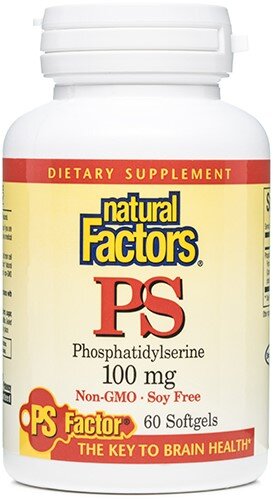This month I wanted to write about a little known supplement with very impressive benefits called PQQ, which is related to the better known nutrient CoQ10 which is most commonly used for its benefits for heart health and cardiovascular function.
Both of these nutrients help each of the individual cells in our bodies, specifically the energy producing mitochondria in our cells. Now most people don’t spend very much time thinking about the cells in our body, any more than we do the atoms of the chair we may be sitting in, but the importance of our cells, and especially the mitochondria- known as the powerhouse of the cell- impacts every system in the body, particularly the heart and brain.
CoQ10 is a vitamin-like nutrient that is manufactured in the body, but that production decreases with age and is also decreased by certain medications, statin drugs in particular. CoQ10 helps to give energy to the cells to run properly. Without sufficient CoQ10, our cells can be starved for energy.
CoQ10 is best known as a heart health supplement, and that’s because our heart cells have the most mitochondria per cell, since our heart requires so much constant energy to do its tireless job of keeping us alive. CoQ10 and mitochondria are important for all cells however, especially for proper functioning of brain cells.
I’ve written so far about CoQ10, which we can think of as food for our mitochondria, which are the powerhouses of the cell. PQQ, which stands for pyrroloquinoline quinine, is another nutrient that’s incredibly important for the health of our cells. Like CoQ10, PQQ helps to support the mitochondria in our cells, but it’s a unique supplement in its ability to help to signal the body to create new mitochondria. PQQ can also help the body to clear out defective mitochondria in our cells- damaged, defective mitochondria must be removed from cells and replaced with properly functioning mitochondria for cells to perform as they should.
The process of removing damaged and defective mitochondria in our cells is called mitophagy. The proper functioning of this process is important for every organ in our body, but research is showing how crucial it is for brain function, specifically degenerative disorders of the brain like Alzheimer’s and Parkinson’s diseases. Let me be clear, PQQ is not a cure for degenerative disorders, but the science is pointing to benefits for those conditions, especially preventatively. Mitochondrial function is crucial for brain health, since the brain uses roughly 20% of the energy our body required each day.
Mitochondrial production is impaired in both Alzheimer’s and Parkinson’s diseases, and research has suggested that mitophagy- the process of removing damaged mitochondria from cells- is also not functioning correctly in people suffering from those disorders. Since PQQ can enhance the recycling of defective mitochondria and the creation of new, healthy mitochondria, it may be beneficial for those degenerative disorders, especially preventatively.
Also, research has suggested that in people with macular degeneration may have problems with defective mitochondria in eye cells, which reduce the ability of cells in eyes to work properly. Abnormal mitochondrial function is also frequently found in people with glaucoma and diabetic retinopathy.
So to summarize, CoQ10 and PQQ are very important nutrients that are particularly important for heart, brain, and eye health. They help our cells to have enough energy to work properly and help to give organs like our heart, brain, and eyes the energy they need to do their jobs. PQQ is a great addition to CoQ10, because it’s able to recycle and encourage our body to replace damaged and defective the energy producing mitochondria in our cells with new mitochondria. They really work synergistically.
We don’t give much thought to our cellular health, but our organs are made up of those cells, and the health of our cells translates to the health and functioning of our organs, which is what controls the health and proper functioning of our bodies!
We have a great product that contains both CoQ10 and PQQ by Natural Factors. It’s a one a day formula that we’ve put on every-day-sale for 25% off. We definitely recommend it! Stop by and see us at 7228 W. College Drive in Palos Heights.
I know that was a bit dry, so if you’ve read this far, you’ve earned a couple of mitochondria memes:















